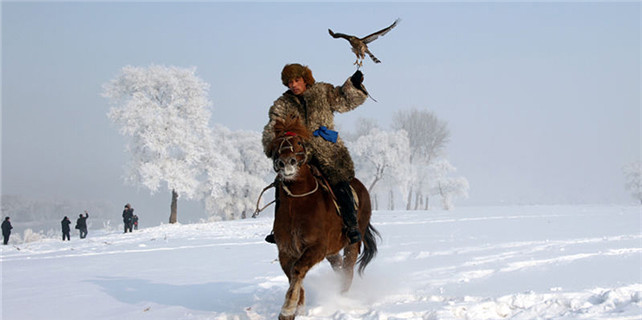Hollywood snaps up rock star's dog film
|
|
Zheng Jun, one of China's rockers from the mid-1990s, says he's now an "animation expert".
Sitting cross-legged on a sofa, a smiling Zheng looks an unlikely rocker. But he was once a big name in Chinese rock 'n' roll. The 49-year-old has written and sung a host of songs that can still be heard in China's karaoke rooms.
Then, filmmaking - a surprising shift after more than two decades in music - caught his fancy seven years ago.
Zheng, along with a few friends, decided to adapt his first graphic novel, Tibetan Rock Dog, as a big-screen animated film in 2009.
The film is about a Tibetan mastiff pup whose family guarded sheep for generations.
But the pup, ignoring its father's wish that he take up the family profession, embarks on a journey to a metropolis to pursue his musical dream.
The 3-D animated film, which is set for a national release on July 8, has two versions, unusual for a Chinese-financed animated movie.
The English version features voiceovers by Luke Wilson and Eddie Izzard, while the Mandarin one has crosstalk performer Guo Degang and his son Guo Qilin.
To make the movie, the producers first flew to the United States to recruit Hollywood talent, which would make the movie the first fully Chinese-financed animated film to be outsourced to an American crew.
After hiring the crew, Zheng frequently flew to the US for meetings with the Hollywood team, most of whom once worked for Disney or Pixar.
"It was the most challenging and difficult thing I'd done," he says of the meetings.
"The rules of the game in China and the US are radically different," he says, explaining that while most of China's showbiz players rely on personal relationships to get work done, in Hollywood everything is done through contracts.
So, with no precedents to follow, Zheng says they initially "wasted" a lot of time and money on finding the right people.
Besides, the first American scriptwriter, whom Zheng declined to identify, was difficult to work with. "He (the scriptwriter) couldn't understand why the protagonist had to be a Tibetan mastiff, which for me represented certain values," Zheng says.
The clashes extended to other areas as well. In a tale with Asian values, the good guy repays evil with goodness despite being betrayed or harmed. That concept left the American scriptwriter bewildered and finally led to the termination of the contract.
Zheng says the experience with the scriptwriter taught him a lesson and he finally put his hopes in Ash Brannon, the co-director of Toy Story 2.
Brannon, who had originally joined the crew as a story artist, was picked to direct the film after he fell in love with the story, foreign media outlets reported.
During this period, Chinese entertainment giant Huayi Brothers joined the other investors in backing the movie.
Zheng says the movie, which he ranks at eight out of 10, fulfills his dream of telling an Eastern story using Hollywood style.
"A lot of puns and the narration make it a very Hollywood kind of film," he says.
xufan@chinadaily.com.cn























